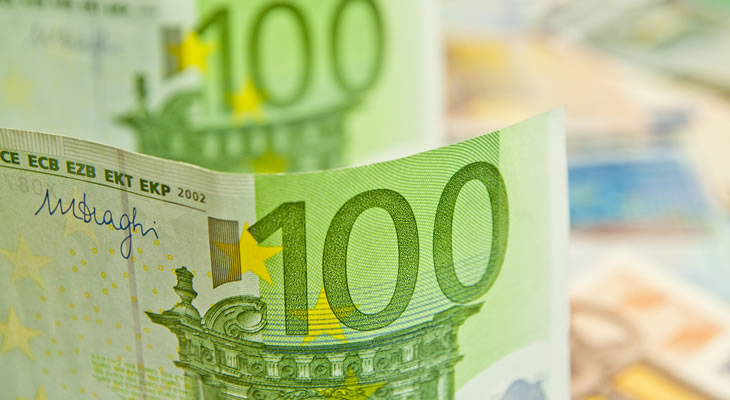Chance of GBP/EUR Exchange Rate Decline on Falling UK GDP Figures
The Pound to Euro exchange rate has risen by 0.3% on 26th March, although Sterling could fall back in the near-future when UK Q4 GDP data is released.
Current estimates are for the stats out on 29th March to show a slowdown from 0.5% to 0.4% on the quarter and from 1.8% to 1.4% on the year.
Both of these results would indicate worsening conditions for the UK economy at the end of 2017 and would set the country up poorly for future economic growth readings.
Chance of GBP/EUR Exchange Rate Rise on Irish Border Breakthrough in Brexit Talks
Less concretely, the Pound to Euro exchange rate could improve in the future if there is a breakthrough in Brexit talks about the Irish border.
Although there has been an agreement on a transitional deal in previous weeks, the status of the Irish border stands out as an unresolved issue.
If UK and EU negotiators are able to come to a clear agreement in the coming weeks, the Pound could rally against the Euro and other currency peers.
The ideal solution will be one with no hard border between Ireland and Northern Ireland, although it remains to be seen if this desired outcome is achievable.
Euro to Pound Exchange Rate (EUR/GBP) Predicted to Slide on Falling Eurozone Confidence Levels
The Euro to Pound (EUR/GBP) losses seen recently could extend on 27th March, if Eurozone confidence data shows falling optimism as expected.
Forecasts have been negative in most cases, with economists predicting lower industrial, services and economic sentiment levels, along with falling business confidence.
The business confidence reading is considered the most high-impact of the stats on offer and could show a developing pattern of falling optimism levels.
The reading previously peaked at 1.59 points in December 2018, but since then has fallen in January and February respectively to readings of 1.56 and 1.48 points.
German Inflation Rate Rise could Spark EUR/GBP Exchange Rate Recovery
There will be a possible saving grace for the Euro later in the week, when German unemployment and inflation data is released on 29th March.
Projections have been positive in both cases, with economists forecasting a drop in the unemployment rate from 5.4% to 5.3%.
Although month-on-month inflation isn’t predicted to shift from 0.5% in March, the high-impact annual figure is tipped to show growth from 1.4% to 1.7%.
Given the size of Germany’s economy, rising inflation here could lead to overall Eurozone inflation rate expansion.
Higher inflation in the single currency bloc will mean increased chances of a long-awaited European Central Bank (ECB) interest rate hike, if price growth nears the ECB’s 2% target.


Comments are closed.